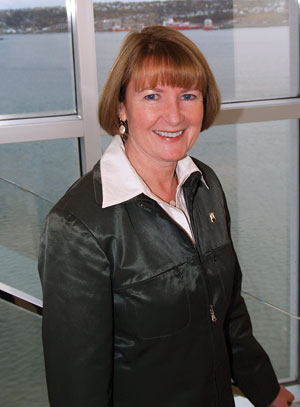The Nova Scotia Barristers’ Society has filed with the province’s court of appeal to challenge the Nova Scotia Supreme Court’s finding that the society’s decision to deny accreditation to the proposed Trinity Western Law School was an infringement of the freedom of religion of any potential student.

The
Nova Scotia court’s finding was essentially the opposite of the ruling that the
Ontario Divisional Court made in July of this year, when it dismissed an application by Trinity for a judicial review of the Law Society of Upper Canada’s April 2014 convocation decision to also deny accreditation.
NSBS co-counsel in the matter and partner in Halifax’s McInnes Cooper, Marjorie Hickey, says for its part, the society is hoping its appeal court will come to the same conclusions as Ontario’s divisional court.
“The court in Ontario found both the law society in Ontario did have jurisdiction to make a decision respecting the accreditation of a degree from Trinity Western and that the society appropriately balanced the Charter issues at play when it was making its decision not to accredit,” Hickey says. “We believe the Ontario decision is the correct decision.”
Hickey says the crux of its appeal is to establish “what is the scope of the society’s authority to regulate in the public interest in matters that really involve the question of the opportunity to enter the legal profession and to maintain public confidence in the administration of justice in a broad sense.”
“We believe that the Nova Scotia Supreme Court narrowly interpreted the society’s jurisdiction, so that it was restricted to only ensuring the competence of its members and the lower court did not consider the society’s much broader mandate to act in the public interest and improve the administration of justice,” she adds. “We’re looking for the court of appeal to make a fresh determination of the Charter implications of the society’s actions.”
She says the hope is the court in Nova Scotia, much like that in Ontario, will determine that the society’s decision to not accredit reflected a reasonable balance between the competing Charter values in light of the broad statutory objective of regulating in the public interest.
With an impending matter in Ontario, and one working its way through the courts in B.C., it’s a matter with which law societies across the country have been grappling. The main concern is that under Trinity’s promotional materials for the proposed law school, students are required to annually read, understand, and pledge to the terms of the Community Covenant, which directs students to adopt a religious lifestyle and that “sexual intimacy is reserved for marriage between one man and one woman.”
The Nova Scotia society takes the stance of its peers in Ontario and B.C., according to its factum of appeal, “. . . that while the state cannot prohibit the exercise of religious beliefs, it has an obligation not to promote or support those beliefs to the detriment of those who do not share them.”
In its factum, the NSBS states the court failed to recognize that the society has an obligation to respect equality rights that are engaged by its decisions and to reasonably balance those rights with religious freedoms. The Supreme Court there had ruled that no equality rights were engaged, but the NSBS argues in its factum that while Trinity has a right to preclude homosexual, lesbian, bi-sexual, or transgendered people from attending its law school, it “is not entitled to have its degree accredited by the Society when the Society has determined that to do so is not in the public interest or in accordance with its own obligations under the Charter and the Nova Scotia Human Rights Act.”
In its factum, Trinity requests the court to find correctness is the standard of review and that while the NSBS has jurisdiction to determine if a student is qualified to article, it does not have express authority to decide the school’s Community Covenant is unlawfully discriminatory. Trinity states that because of the impact on the administration of justice as a whole, the questions being raised by the NSBS require uniform and consistent answers.
“If the standard of review is reasonableness [as opposed to correctness], different law societies (and different Colleges of Teachers or other regulators) may reach different conclusions on whether the Community Covenant is discriminatory. Indeed, they have done so,” Trinity states in its factum. “The fact Canadian law societies have entered into a mobility agreement is a reason for a uniform and consistent ruling on TWU’s Community Covenant.”
Meanwhile, the Law Society of Upper Canada has also recently approved an additional $350,000 in the 2016 budget for the general counsel office, bringing its total to $750,000 in part to assist in the Trinity matter. Trinity has an appeal of the Ontario divisional court ruling and LSUC communications advisor Susan Tonkin said in an e-mail to
Law Times that it is still waiting for the date to be set. “It really comes down to our belief that the scope of the society’s mandate has to be much broader than that, [which] was suggested by the Nova Scotia Supreme Court in order for the society to regulate in the public interest and to address issues relating to the administration of justice,” Hickey says.
TWU did not return requests for comment by press time.

 The Nova Scotia court’s finding was essentially the opposite of the ruling that the Ontario Divisional Court made in July of this year, when it dismissed an application by Trinity for a judicial review of the Law Society of Upper Canada’s April 2014 convocation decision to also deny accreditation.
The Nova Scotia court’s finding was essentially the opposite of the ruling that the Ontario Divisional Court made in July of this year, when it dismissed an application by Trinity for a judicial review of the Law Society of Upper Canada’s April 2014 convocation decision to also deny accreditation.